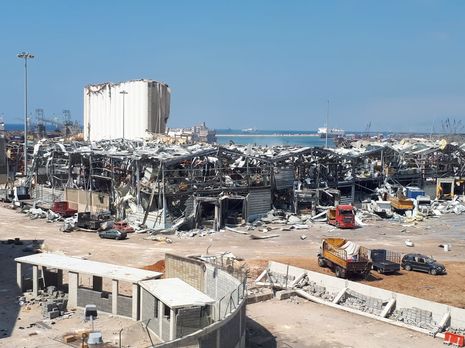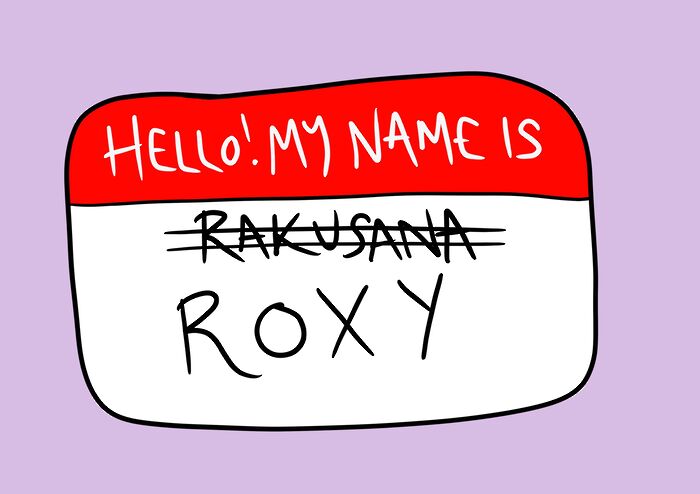The Beirut blast is a lesson in neocolonialism
Maya Gavin, who grew up in Lebanon, reflects on the country’s tough history as a colonial project, and calls for greater understanding of how a neoliberal agenda is harming the people on the ground.

It’s likely that you have seen the footage of the explosion that tore through Beirut on the 4th of August.
A preliminary explosion in the port of Beirut, the cause of which remains unknown, alighted 2,750 tonnes of ammonium nitrate which had been irresponsibly stored at the port. This resulted in the third most powerful explosion recorded in history. 191 people were killed, more than 6,000 injured, and around 300,000 made homeless. It’s difficult to articulate the shock and collective trauma.
What followed the blast was complete political negligence by those in power. There was no coordinated response by the state, apart from a two-week state of emergency which gave the military overreaching powers to curb freedom of assembly and conduct arbitrary arrests. Civilian volunteers and the Lebanese Red Cross were left to deal with the aftermath.
French President Macron was quick to seize the opportunity. On the 6th of August, Macron planned an emergency visit to Beirut. There, he staged a walk through the worst affected areas and gave away hugs and reassurances to the public, before proposing a new political pact to the Lebanese cabinet.
Macron finalized his trip with a speech at the French Ambassador’s palace, where he concluded: “I am here today to remind you to never forget, despite the challenges of the day, that there are the people of Europe, the people of France, whose heart still beats a bit at the pulsation of Beirut… because they know that … there is a people who, in a region where the worst has sometimes come, where everything has ceded to terrorism and obscurantism, we know that there are a people who love liberty, culture and civilization.” Two days after the president’s visit, Lebanese security forces fired French-supplied tear gas and rubber bullets on protestors.
Macron’s visit was a blatant display of hypocrisy, white supremacism and saviourism. This is evident not only in his overtly racist and orientalist comments on the region, but also in the way he appealed to a Lebanese colonial mentality that fetishizes its proximity to the ‘people of Europe’. This has been ignored by Western media too many times, particularly when dealing with political crises in the ‘formerly-colonized world’. This kind of neo-imperialism is not merely theatrical, but structural. Macron capitalized on public trauma for political leverage, which he then used to corner the already loathed Lebanese establishment.
“It is clear that the international community took advantage of both the political crisis and the pressure created by aid dependence to push their geopolitical interests in Lebanon”
On the 100th anniversary of the creation of Greater Lebanon by French colonial powers, Macron promised financial aid under a condition: that the Lebanese government implement sweeping fiscal, public sector and parliamentary reforms detailed in his 3-month “draft programme for the new government”.
Yes, Macron delivered financial relief. But this does not ask us to be apologetic to neo-colonial politics. Let us remember that France owes Lebanon reparations for the Mandate era. Apart from the devolution of presidential power after the civil war, Lebanon’s political system remains founded on a confessional formula imposed by the French Mandate that was designed to create divisiveness and dependency on France.
Aid is not an act of ‘benevolence’: it should be understood as long-overdue reparations, given with an apology as opposed to a whitewashed appeal to a “shared history”.
Macron’s interests may also be a bid to forestall one of the worst refugee tragedies in the region. Let us not forget that Lebanon already hosts around 1.7 million Syrian and Palestinian refugees. When I spoke to Chloé Kattar, PhD candidate studying the history of the Lebanese Civil War at Cambridge, she stressed that “the French zone of influence in the Levant is important but Macron was also visiting in a pre-emptive attempt. In case the country completely collapses, France will be the first to have to deal with mass immigration of the Lebanese and other refugees, which has already started.”
This is not about side-lining blame from the Lebanese government, but moving away from seeing the international community and Lebanese political elite as antagonistic. The international community, as well as Iran and Saudi Arabia, have in the last 30 years sought to carve out their interests within the Lebanese political establishment. Hezbollah has been dependent on Iran for its financing, military and social services, while ex-Prime Minister Saad Hariri has almost been subordinate to Saudi interest and French, European and US agendas in the region. Macron personally approved the appointment of PM-designate Mostapha Adib, who resigned on 26th September due to an impasse over Shia party’s Amal and Hezbollah’s insistence on naming finance ministers.
Alongside Macron’s intervention, the US used this moment to place sanctions on Lebanese ministers Youssef Fenianos and Ali Hassan Khalil for “providing material support to Hezbollah and engaging in corruption”. It is clear that the international community took advantage of both the political crisis and the pressure created by aid dependence to push their geopolitical interests in Lebanon. Recently, Rudolph Saa’deh, the CEO of transport corporation CMA-CGM, accompanied Macron on his visit to Beirut, with hopes of buying off rights to the port - Megaphone reports.
Cutting off foreign interference was a core demand of the thawra (the ‘October 17 revolution’), which happened a year ago now. ’Killon ya3ne killon’ (“all of them means all of them”) was the main slogan of the revolution, aimed at figures of the political establishment as well as their foreign sponsors. For many, Lebanon’s economy and politics has been entirely sold to foreign interest.
“Lebanon is stuck, as it was made clear during the thawra, because the country was used economically and politically for the gains of politicians and investors, both foreign and Lebanese.”
Since October, the economy has collapsed, leaving the Lira devalued by 90%. This outcome has been widely linked to the state-bank agreement that placed state debt in people’s personal bank accounts. Aggressive neoliberalisation in the post-civil war era created a total dependence on foreign investment brought in with incredibly high interest rates. The Lebanese Lira, pinned to the dollar, would inevitably fail.
Wealth was siphoned off by foreign investors, usually working through Lebanon’s elite business class and politicians. In an interview, former director general of the Ministry of Finance Alain Bifani explains that since the 1990s, Lebanon’s political system “mostly relied on the distribution of advantages and the misuse of public funds to buy alliances and to create allegiance”. Deals were made between the political, banking and business sectors inside and outside the country, with the 99 percent of Lebanon’s population reaping none of the benefits. Corruption became even more endemic because the judiciary does not pursue ministers on the theft of public assets. As Bifani concluded, “not doing anything is the policy – it is precisely the policy”.
Lebanon is stuck. Ma fi mahrab, ‘there is no escape’, as Chloé Kattar put it. Lebanon is stuck, as it was made clear during the thawra, because the country was used economically and politically for the gains of politicians and investors, both foreign and Lebanese. The political elite – who once fought each other during the civil war – retired 30 years ago.
Today, it’s not Macron vs. the Lebanese political establishment. For a long time, Lebanon has been stuck in a colonial project built on a highly extractive and aggressive political system and economy. Until the project collapsed, the ‘international community’ and Lebanese government were complacent. Now, the only ‘escape’ from this seemingly inescapable place seems to be through foreign aid, the IMF and political conditionalities set by the West. This would only further the same neoliberal agenda which led to this position in the first place.
Lebanon is in crisis, but the ‘solution’ is no quick fix. What is being reinforced now is a long-term, imperial relationship between Lebanon and the global capitalist order. People in the West need to wake up to the continued imposition of imperial relations. What we can do here is stop our governments from sponsoring state violence, and lobby our very own university to demilitarise and cut ties with companies that create the tools to enforce state violence in other countries. Although aid is not the solution to the situation in Lebanon, donating to smaller organisations such as Beit el Baraka, Lebanese Food Bank, Egna Legna, Offre Joie, can help the most marginalised groups in Lebanon, including refugees and migrant domestic workers who face the harsh realities of the Kafala system. This event in Lebanon is not just a headlining tragedy; it displays the colonial relationship of power that still governs the world today.
 News / Hundreds of Cambridge academics demand vote on fate of vet course20 February 2026
News / Hundreds of Cambridge academics demand vote on fate of vet course20 February 2026 News / Judge Business School advisor resigns over Epstein and Andrew links18 February 2026
News / Judge Business School advisor resigns over Epstein and Andrew links18 February 2026 News / University Council rescinds University Centre membership20 February 2026
News / University Council rescinds University Centre membership20 February 2026 News / Petition demands University reverse decision on vegan menu20 February 2026
News / Petition demands University reverse decision on vegan menu20 February 2026 News / Caius students fail to pass Pride flag proposal20 February 2026
News / Caius students fail to pass Pride flag proposal20 February 2026










